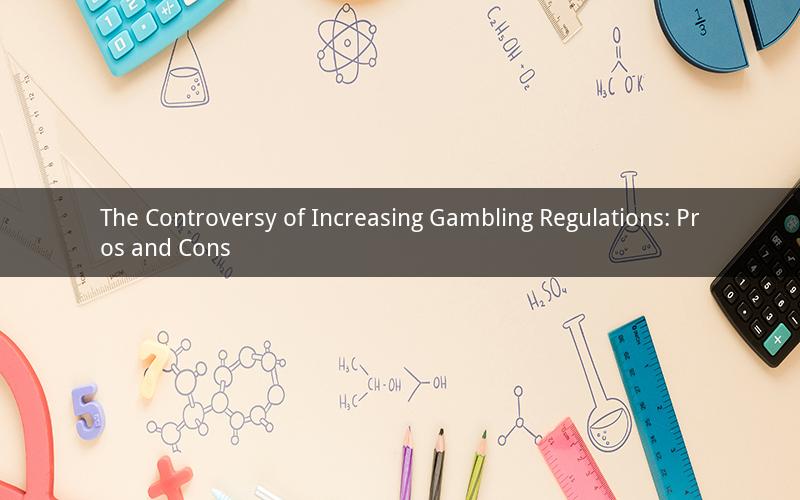
Introduction:
The issue of whether gambling should be more regulated has been a hot topic in recent years. As gambling continues to gain popularity worldwide, concerns about its potential negative impacts on individuals and society have prompted calls for stricter regulations. This article explores the arguments for and against increasing gambling regulations, highlighting the potential benefits and drawbacks of such measures.
Benefits of Increasing Gambling Regulations:
1. Reducing Problem Gambling:
One of the primary reasons for advocating more stringent gambling regulations is to minimize the negative consequences of problem gambling. By imposing stricter rules, governments can protect vulnerable individuals from the harmful effects of excessive gambling, such as financial ruin, addiction, and mental health issues.
2. Ensuring Fairness and Transparency:
Regulations can help ensure that gambling activities are conducted fairly and transparently. By requiring operators to adhere to specific standards, authorities can prevent cheating, money laundering, and other illegal activities that can undermine the integrity of the gambling industry.
3. Protecting Children and Vulnerable Individuals:
Increased regulations can help safeguard children and vulnerable individuals from the dangers of gambling. By setting age limits, restricting access to gambling websites, and implementing measures to identify and prevent underage gambling, authorities can reduce the risk of exploitation and harm.
4. Generating Revenue for Public Services:
Properly regulated gambling can generate significant revenue for governments, which can be allocated towards public services and welfare programs. By ensuring that gambling is conducted legally and responsibly, authorities can maximize the benefits of this industry while minimizing its potential drawbacks.
Drawbacks of Increasing Gambling Regulations:
1. Restricting Consumer Choice:
Some argue that stricter gambling regulations can limit consumer choice and lead to a decrease in the availability of gambling options. This could result in a loss of revenue for the industry and potentially lead to an underground gambling market that is unregulated and more susceptible to criminal activities.
2. Negative Impact on the Economy:
Increased regulations can have a negative impact on the economy by reducing the number of jobs in the gambling industry. This could lead to a loss of tax revenue and a decrease in overall economic activity.
3. Potential for Corruption and Bureaucracy:
As with any form of regulation, there is always a risk of corruption and bureaucracy. Strict regulations can create opportunities for officials to abuse their power, leading to inefficiencies and a lack of transparency.
4. Unintended Consequences:
Overly restrictive regulations can have unintended consequences, such as pushing individuals to engage in illegal gambling activities. This could result in a loss of control for authorities and a decrease in the effectiveness of regulation.
5. Impact on Tourism:
In regions where gambling is a significant source of tourism revenue, increased regulations may have a negative impact on the industry. Stricter rules could deter tourists from visiting gambling destinations, leading to a loss of revenue and jobs.
Frequently Asked Questions:
1. Q: Can more stringent gambling regulations effectively reduce problem gambling?
A: While increased regulations can play a role in reducing problem gambling, they are not a definitive solution. A comprehensive approach that includes prevention, education, and support services is essential for addressing this issue effectively.
2. Q: Will stricter regulations limit the availability of gambling options for consumers?
A: It is possible that stricter regulations could limit the variety of gambling options available to consumers. However, responsible regulation can strike a balance between protecting individuals and allowing for a thriving and sustainable gambling industry.
3. Q: Can governments generate substantial revenue from properly regulated gambling?
A: Yes, properly regulated gambling can generate significant revenue for governments. By implementing measures that ensure responsible gaming, authorities can maximize the benefits of the industry while minimizing its potential drawbacks.
4. Q: What is the impact of gambling regulations on the tourism industry?
A: In regions where gambling is a significant tourist attraction, increased regulations can have a negative impact on tourism. However, responsible regulation can help maintain the industry's appeal while ensuring the well-being of individuals and the community.
5. Q: Can governments effectively enforce strict gambling regulations?
A: Enforcing strict gambling regulations can be challenging, but it is not impossible. Authorities must be proactive in monitoring and enforcing regulations, collaborating with operators and stakeholders to ensure compliance and address any violations promptly.